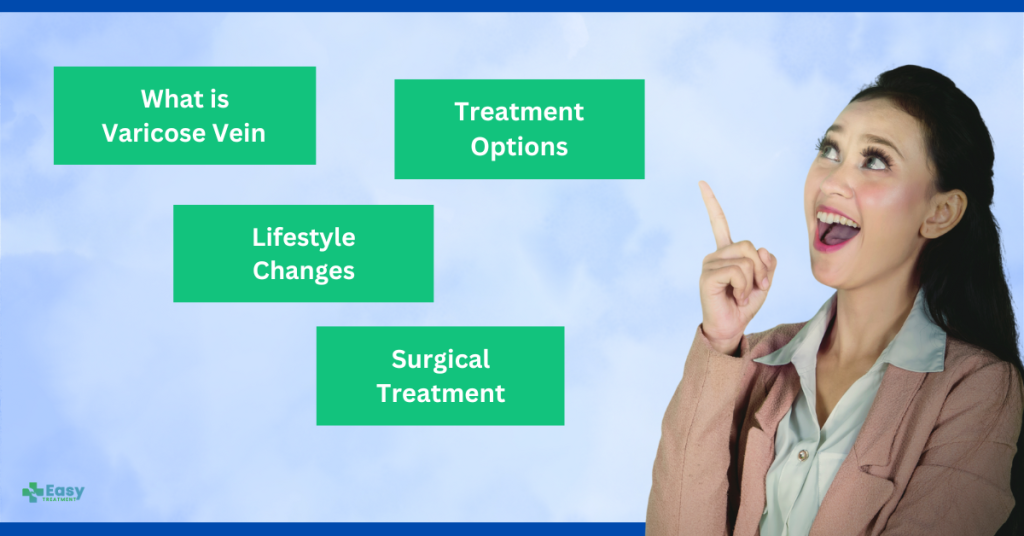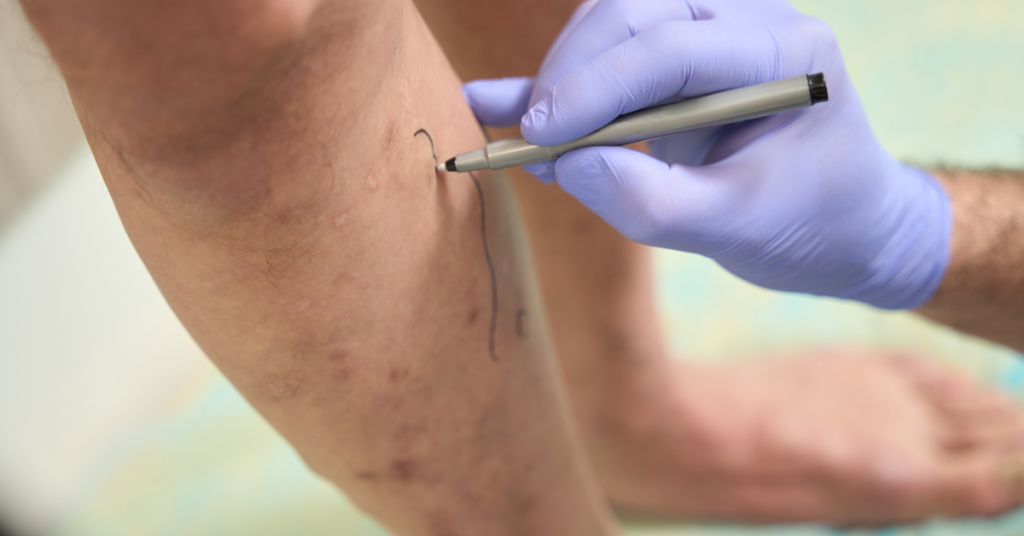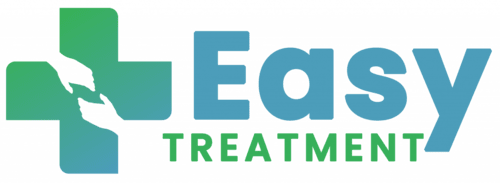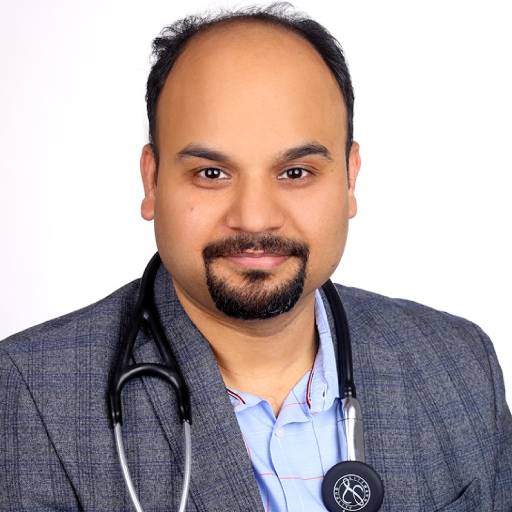Explore the comprehensive guide to varicose vein disease treatment, designed to empower individuals seeking effective solutions. From minimally invasive procedures to lifestyle changes, this informative article delves into the various options available, helping readers make informed decisions about their health and well-being. Whether you’re considering treatment for varicose veins or seeking to understand the best approach for your specific needs, this guide is your go-to resource for navigating the world of varicose vein disease treatment.

What is Varicose Vein Disease?
Varicose vein disease occurs when the valves in your veins become weak or damaged, causing blood to pool and veins to swell. This condition often leads to symptoms like:
- Twisted, bulging veins
- Heaviness or aching in the legs
- Swelling, itching, or cramping
- Skin discoloration around the affected veins
- A burning or throbbing sensation in the lower limbs
Factors such as genetics, pregnancy, obesity, prolonged standing or sitting, and a sedentary lifestyle increase the risk of varicose veins. If left untreated, complications like skin ulcers, venous insufficiency, or blood clots may arise, making early intervention essential.
Symptoms and Potential Complications
Varicose vein disease can cause various symptoms, and if left untreated, it may lead to more serious complications. Understanding these signs early can help prevent further issues. Here are the common symptoms and potential complications:
Common Symptoms of Varicose Vein Disease:
Itching or Skin Changes: Skin around the varicose veins may itch, become discolored, or develop dry patches.
Visible, Twisted, and Bulging Veins: Varicose veins often appear as dark, swollen veins that twist and bulge under the skin, typically in the legs.
Heaviness or Discomfort in the Legs: People with varicose veins may experience a feeling of heaviness, tightness, or discomfort, especially after prolonged standing or sitting.
Pain or Aching: There may be mild to moderate pain in the affected areas, often worsening throughout the day.
Swelling of the Legs and Ankles: Fluid retention can lead to noticeable swelling, particularly in the lower legs and ankles.
Potential Complications of Varicose Vein Disease:
If left untreated, varicose veins can lead to serious health issues. The potential complications include:
- Skin Ulcers: Severe varicose veins may lead to open sores or ulcers, particularly around the ankles. These can be painful and difficult to heal.
- Blood Clots: Varicose veins increase the risk of blood clots, which can be painful and require medical attention.
- Deep Vein Thrombosis (DVT): A more serious complication, DVT occurs when a blood clot forms in the deep veins of the legs, which can be life-threatening if not treated promptly.
- Bleeding: In some cases, varicose veins may bleed if they are injured, leading to significant blood loss.
Lifestyle Changes for Varicose Vein Management
Making certain lifestyle changes can help manage varicose vein disease and alleviate its symptoms.
Importance of Regular Exercise
Engaging in regular physical activity, such as walking, swimming, or cycling, can improve blood flow in the legs and reduce the risk of developing varicose veins.
Dietary Considerations for Varicose Vein Disease
A diet high in fiber and low in salt can help prevent constipation and reduce the pressure on the veins. Additionally, consuming foods rich in flavonoids, such as berries, citrus fruits, and spinach, may promote vein health.
Tips for Managing Weight and Avoiding Prolonged Sitting or Standing
Maintaining a healthy weight can reduce the pressure on the veins, while avoiding prolonged periods of sitting or standing can help prevent the development of varicose veins.

Minimally Invasive Treatment Options
For individuals seeking treatment for varicose veins, several minimally invasive procedures are available to address the condition.
Sclerotherapy: How it Works and its Effectiveness
Sclerotherapy involves injecting a solution directly into the affected veins, causing them to collapse and eventually fade from view. This procedure is effective for treating small varicose veins and spider veins.
Endovenous Laser Ablation (EVLA): Procedure and Recovery Process
EVLA is a minimally invasive treatment that uses laser energy to seal off the affected vein, redirecting blood flow to healthier veins. The recovery process is typically quick, with minimal discomfort and downtime.
Radiofrequency Ablation (RFA): Benefits and Potential Side Effects
RFA is a procedure that uses radiofrequency energy to heat and close off the affected vein. This treatment offers the benefit of minimal scarring and a relatively short recovery period, although some individuals may experience minor side effects such as bruising or swelling.
Surgical Treatment for Varicose Vein Disease
In some cases, surgical intervention may be necessary to address severe varicose vein disease.
Ambulatory Phlebectomy: Overview and Postoperative Care
Ambulatory phlebectomy involves the removal of varicose veins through small incisions, typically performed on an outpatient basis. Following the procedure, patients are advised to wear compression stockings and avoid strenuous activities for a period of time.
High Ligation and Vein Stripping: Procedure Details and Recovery Expectations
This surgical procedure involves tying off and removing the affected vein through small incisions. Recovery from high ligation and vein stripping may take longer than minimally invasive treatments, and patients may experience some discomfort and bruising during the healing process.
Choosing the Right Treatment Approach
When considering treatment options for varicose vein disease, it’s important to take several factors into account.
Factors to Consider When Selecting a Treatment Option
Individuals should consider the size and severity of their varicose veins, their overall health, and any potential risks associated with each treatment option.
Consultation with a Healthcare Professional for Personalized Recommendations
Seeking guidance from a healthcare professional, such as a vascular surgeon or phlebologist, can help individuals make informed decisions about the most suitable treatment approach for their specific needs.
Understanding the Potential Outcomes and Risks Associated with Each Treatment
Being aware of the potential outcomes and risks of varicose vein treatments can empower individuals to weigh their options and make choices that align with their health and well-being goals.
Understanding the various treatment options for varicose vein disease is essential for individuals seeking effective solutions to manage their condition. Whether considering minimally invasive procedures or surgical interventions, individuals can make informed decisions about their health and well-being by exploring the comprehensive guide to varicose vein disease treatment. By taking proactive steps and seeking professional guidance, individuals can address varicose vein disease and improve their overall quality of life.
Varicose vein disease is not just a cosmetic concern; it impacts your overall health and quality of life. Understanding the causes, recognizing the symptoms, and exploring treatment options empowers you to make informed decisions about managing this condition. From lifestyle changes and non-invasive therapies to advanced surgical procedures, there are numerous effective solutions available to help you regain comfort and confidence.
At Easy Treatment, we provide patient-centered care, offering expert advice and tailored treatment plans for varicose vein disease. Our specialists use cutting-edge techniques to ensure the best outcomes for your health and well-being. Don’t let varicose veins hold you back—explore effective solutions today by visiting Easy Treatment. Let us guide you toward healthier veins and a more confident you!

